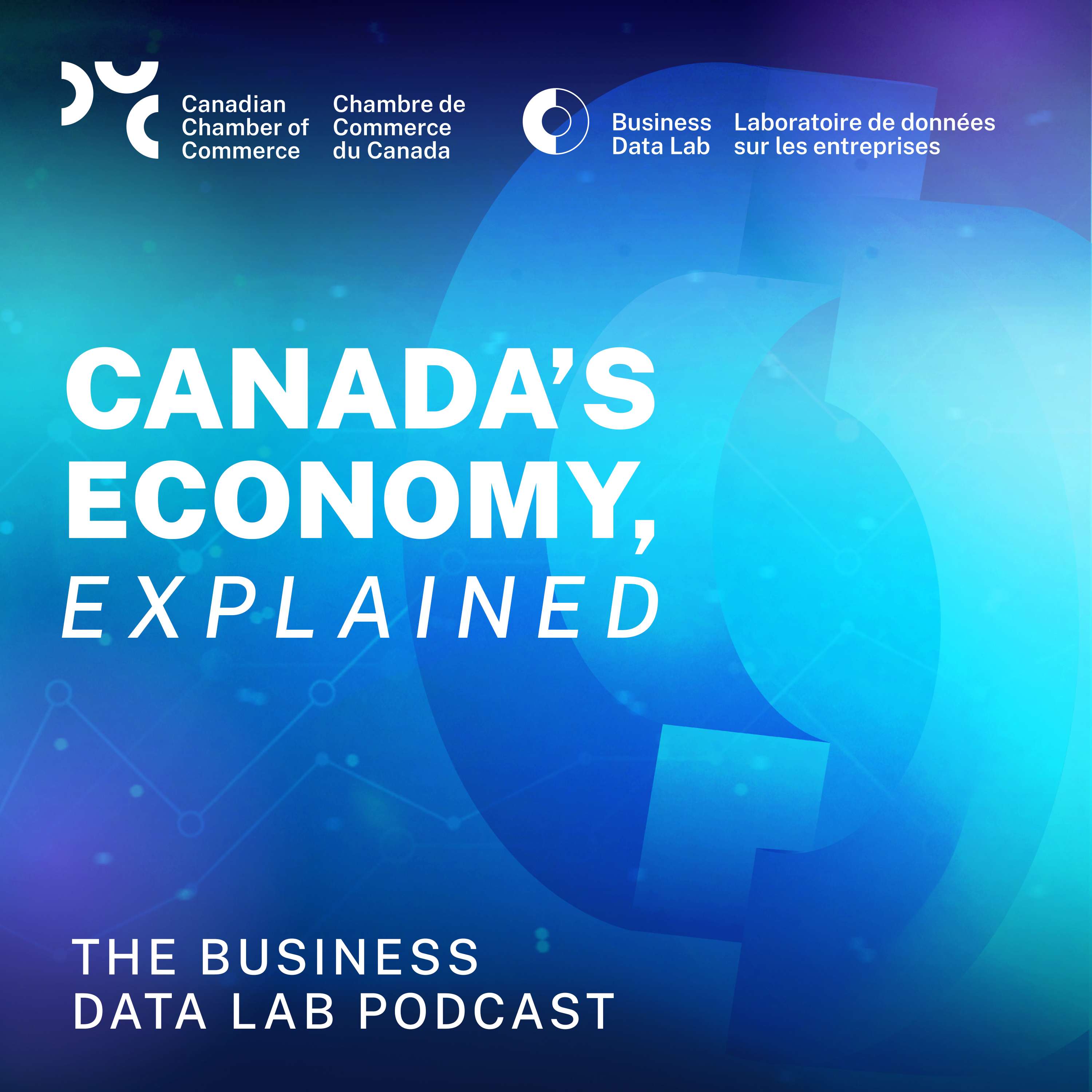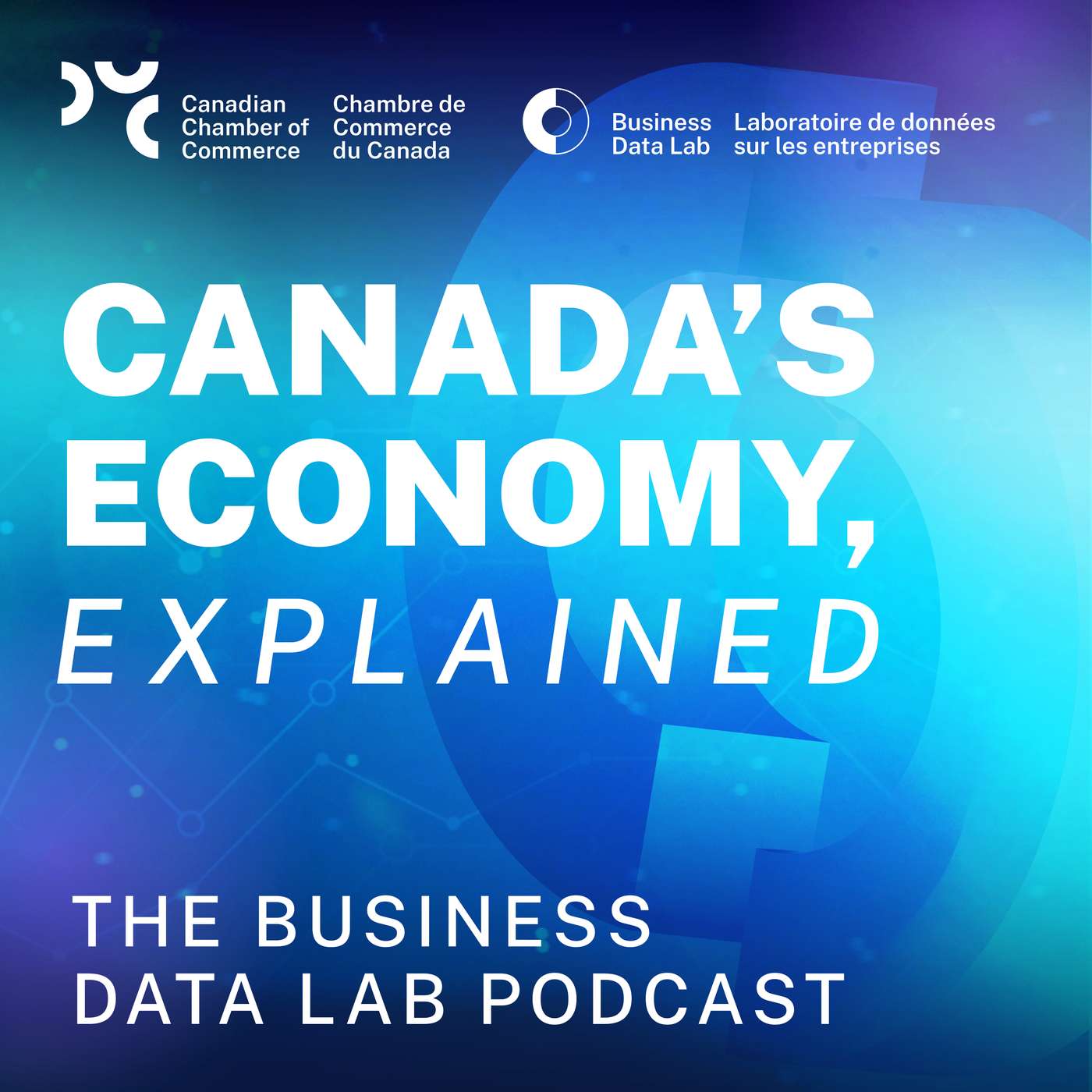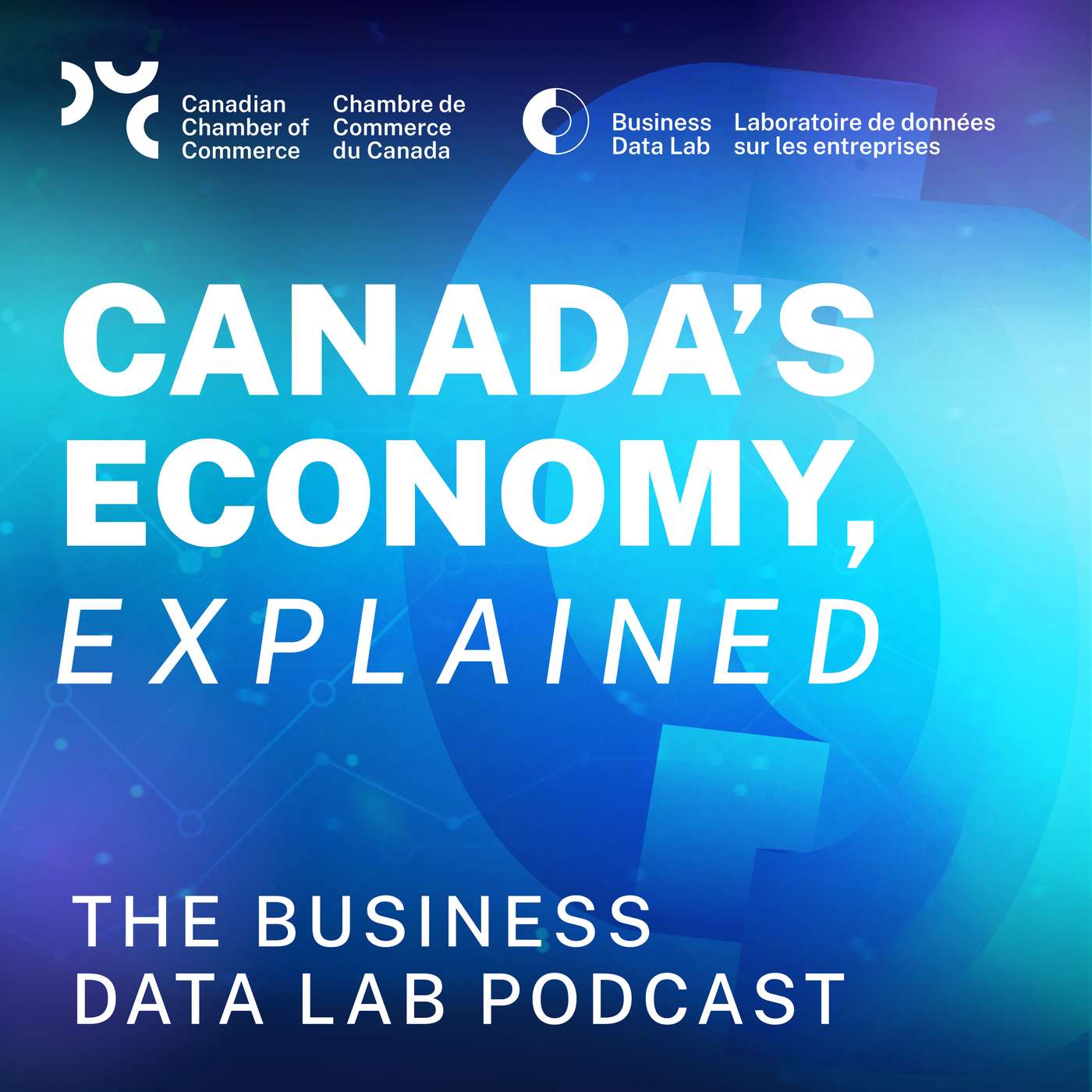Canada's Economy, Explained

Canada's Economy, Explained
Podcast Description
Canada's Economy, Explained: The Business Data Lab Podcast is an initiative of the Canadian Chamber of Commerce hosted by Senior Research Director Marwa Abdou. Designed for business owners, decision-makers, and curious listeners, this podcast delivers real-time data, expert analysis, and actionable insights on workforce trends, economic conditions, and more.
Podcast Insights
Content Themes
The podcast focuses on economic trends, workforce data, and productivity challenges, with episodes like Canada’s Productivity — An Emergency 40 Years in the Making addressing low labor productivity ranks among G7 countries and Economic Outlook 2025 discussing the implications of inflation and labor disruptions. Key content areas include technological impacts on productivity, forecasts for economic conditions, and strategic insights for businesses navigating current challenges.

Canada’s Economy, Explained is the official podcast of the Business Data Lab at the Canadian Chamber of Commerce, hosted by Senior Research Director Marwa Abdou.
Whether you’re a business leader, policymaker, or simply curious about the forces shaping our economy, this podcast brings you real-time data, sharp analysis, and conversations that matter. From workforce trends and inflation to trade, innovation, and inclusion, we unpack the stories behind the stats — with leading economists, industry voices, and fresh perspectives.
Timely. Insightful. Unfiltered. This is where Canada’s economy gets explained.
In this special episode, recorded live at the Canadian Chamber of Commerce’s AGM and Convention, host Marwa Abdou speaks with Minh Tri Dang, Senior Vice President of Strategy and Finance at Wilson, and Karla Congson, CEO and Founder of Agentiiv, about the intersection of work, leadership, and innovation at a critical moment for Canada’s economy.
Technology is advancing faster than our ability to build the skills and leadership models needed to use it well. Nowhere is this more evident than in the rise of AI. Organizations that treat AI as a simple technological upgrade, rather than a shift in culture and capability, will struggle to remain competitive in a market that rewards adaptability, not just adoption.
Marwa, Minh, and Karla examine what this means on the ground. They explore how the labour market is already being reshaped, and why the decline in entry-level roles is creating broken rungs in the career ladder. The traditional pathways that once helped young workers gain experience are narrowing, and the implications for opportunity and mobility are significant.
All three agree on one thing: Canada needs a coordinated national workforce strategy that connects skills, innovation, and inclusion. Without it, the country risks falling behind at a time when the pace of change is accelerating.

Disclaimer
This podcast’s information is provided for general reference and was obtained from publicly accessible sources. The Podcast Collaborative neither produces nor verifies the content, accuracy, or suitability of this podcast. Views and opinions belong solely to the podcast creators and guests.
For a complete disclaimer, please see our Full Disclaimer on the archive page. The Podcast Collaborative bears no responsibility for the podcast’s themes, language, or overall content. Listener discretion is advised. Read our Terms of Use and Privacy Policy for more details.